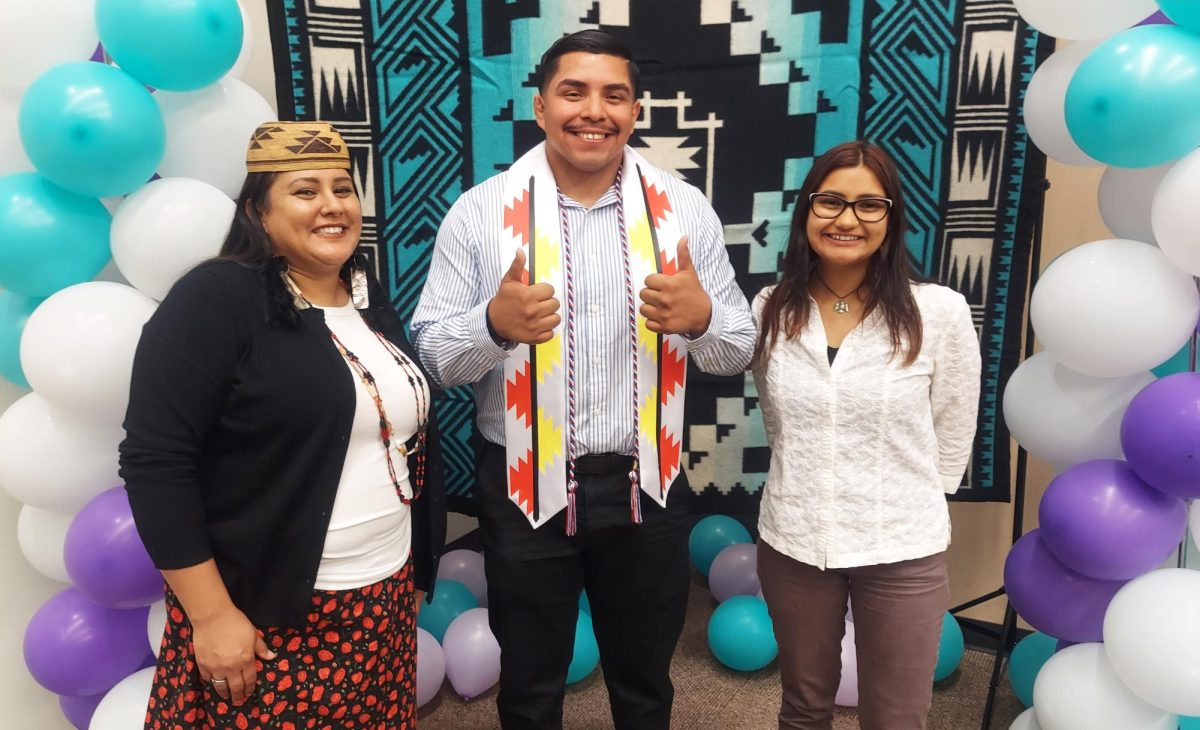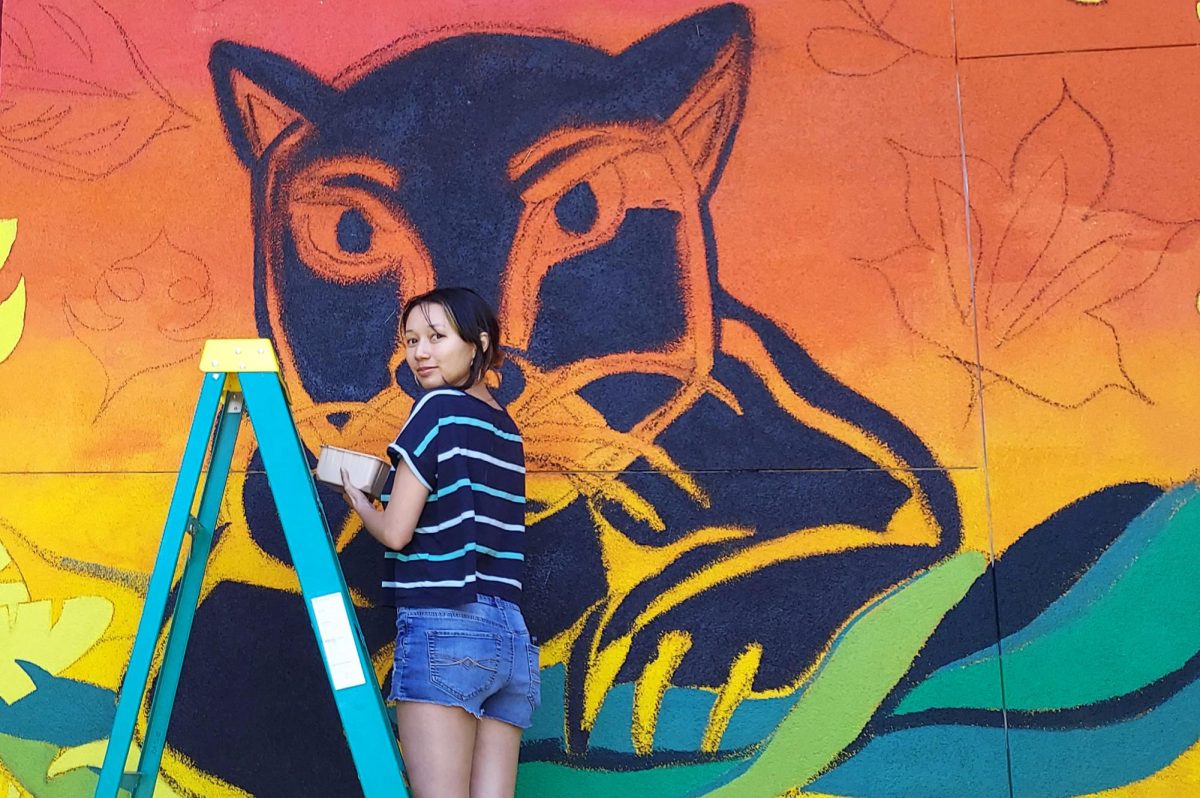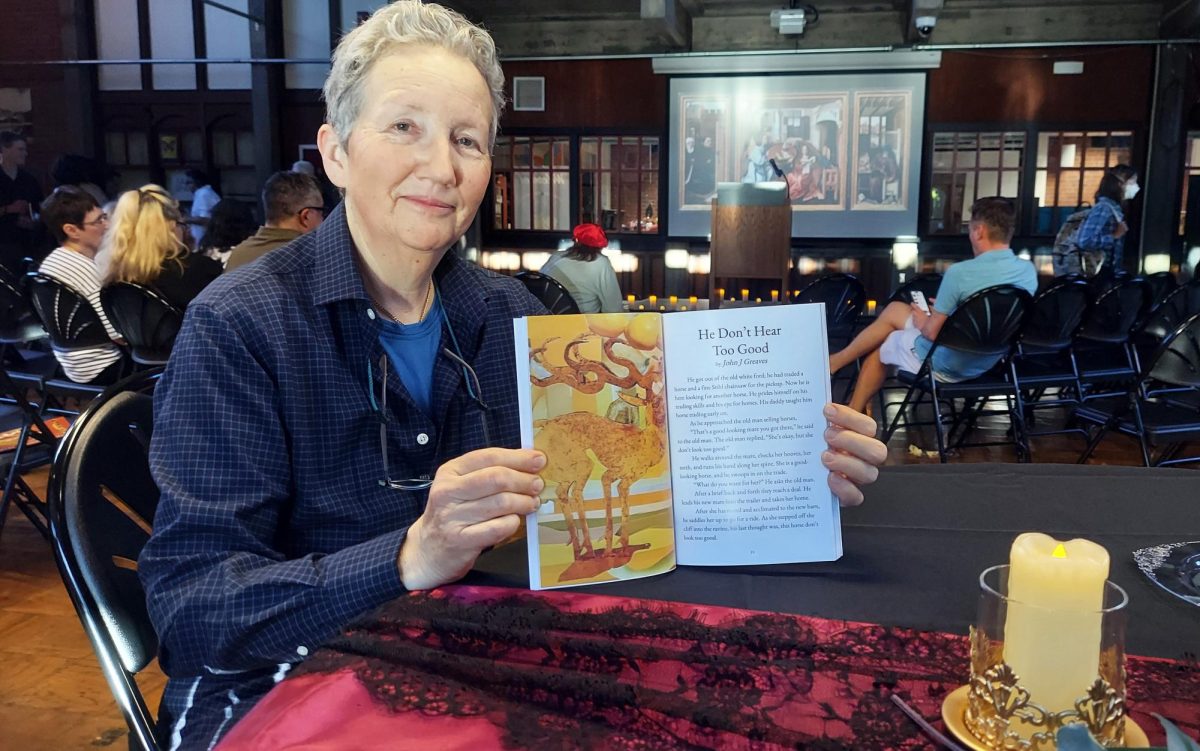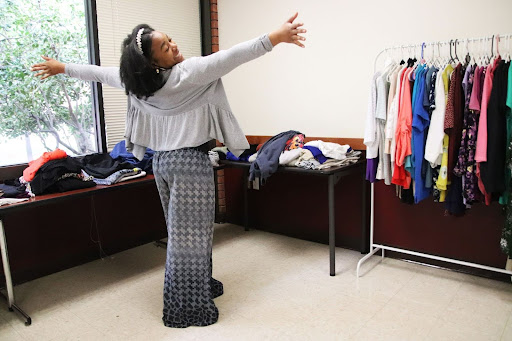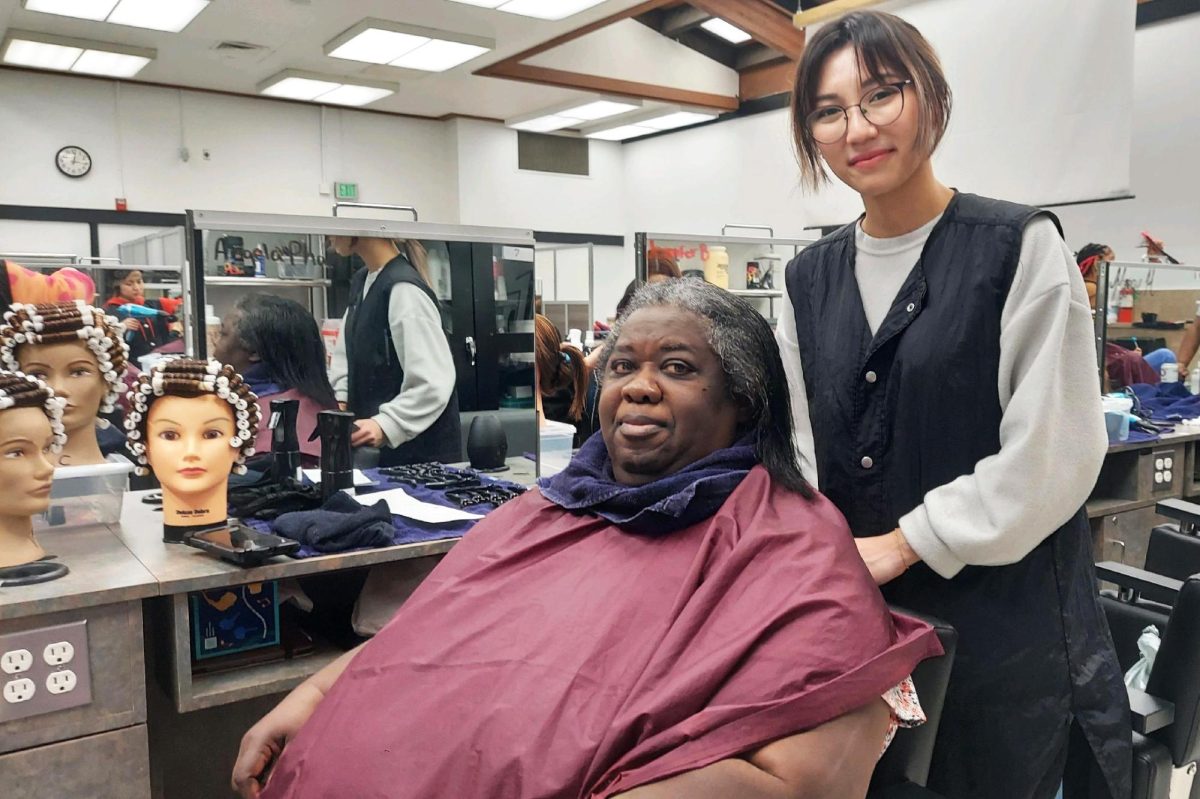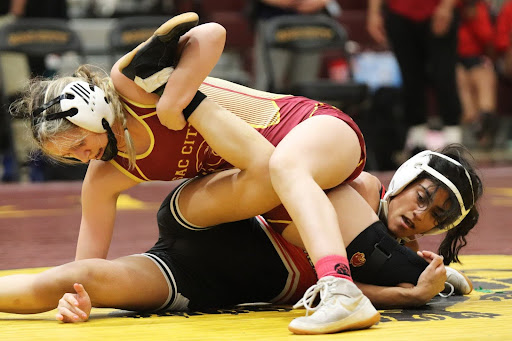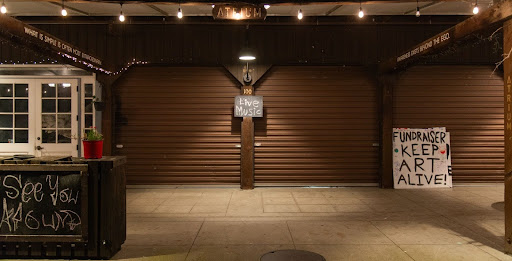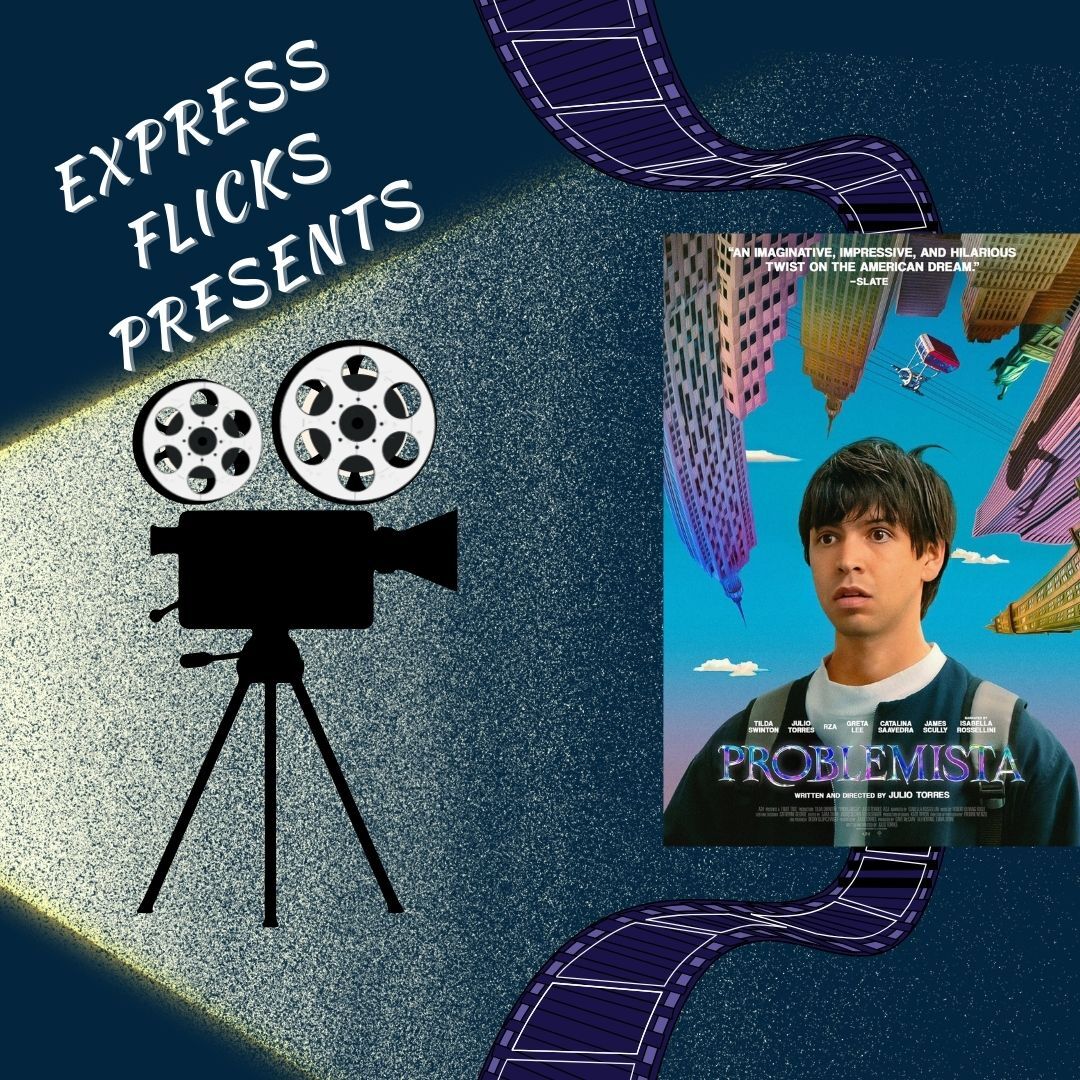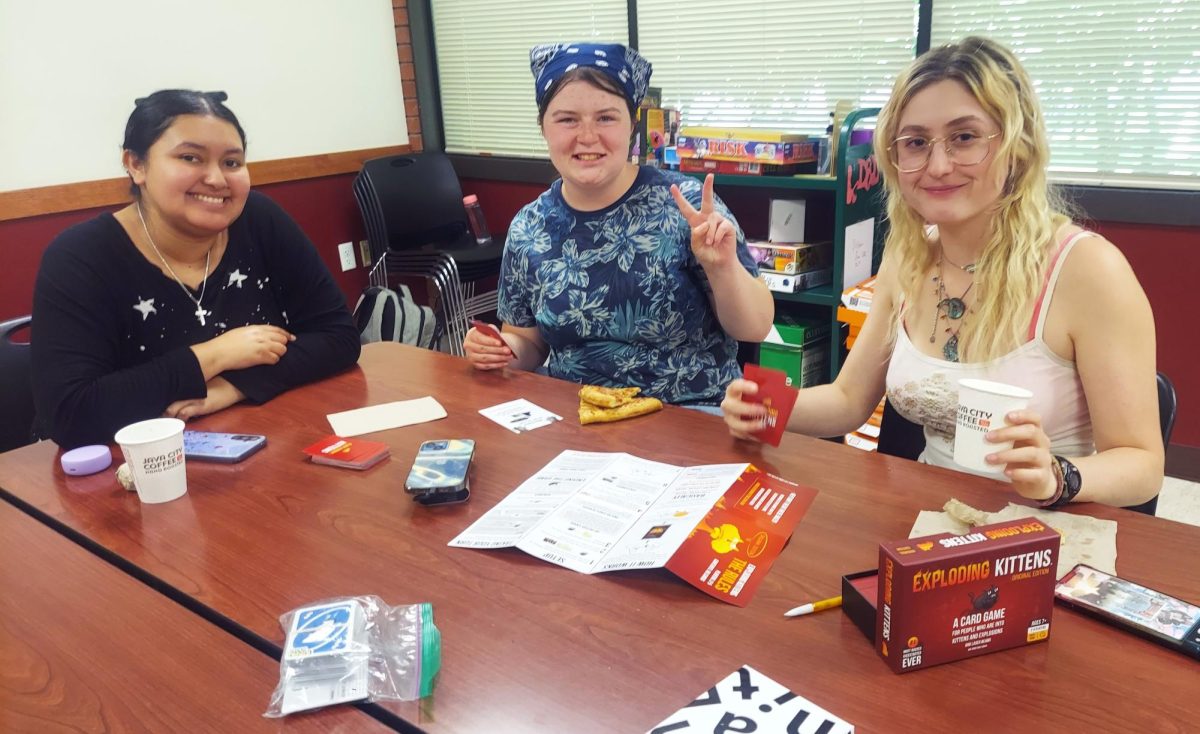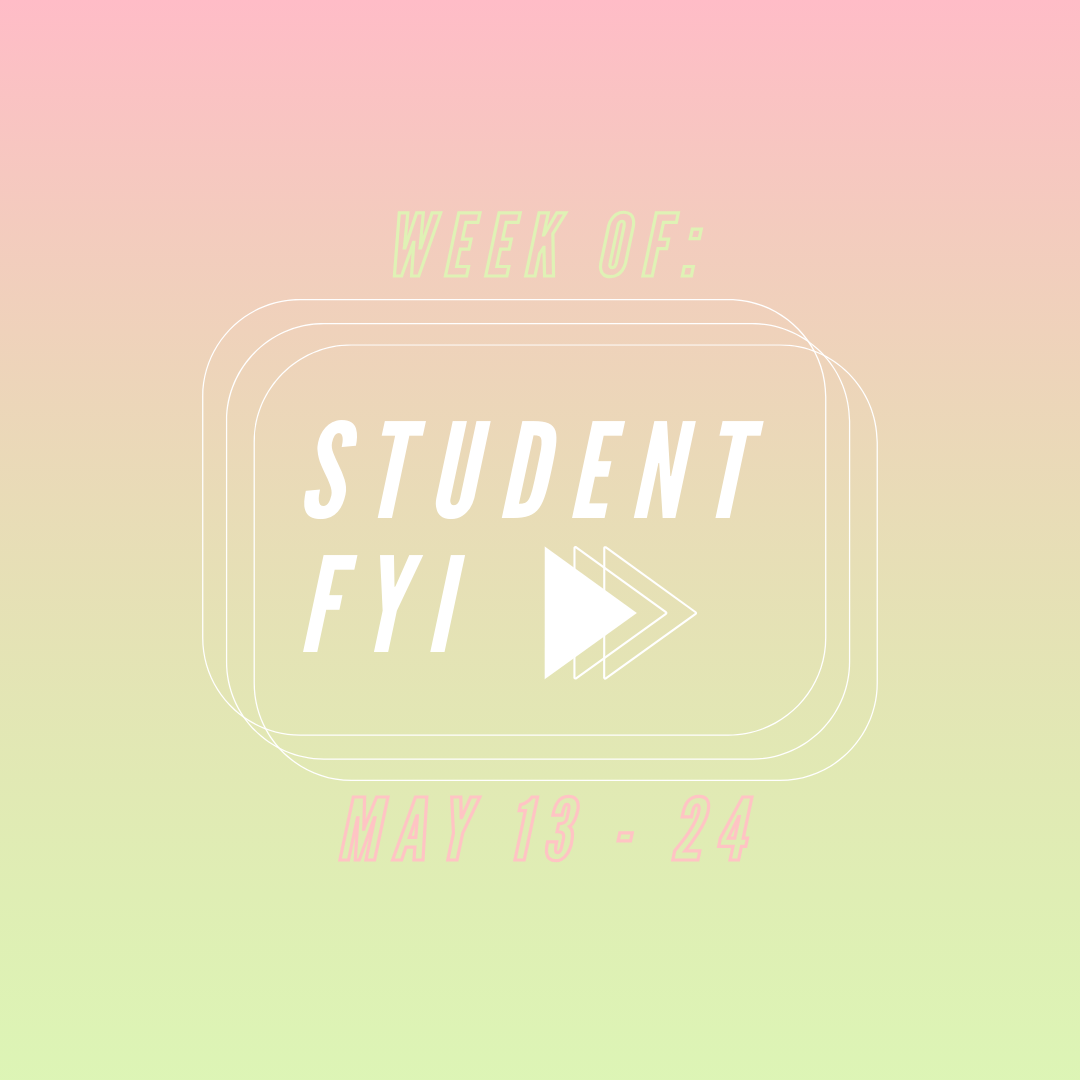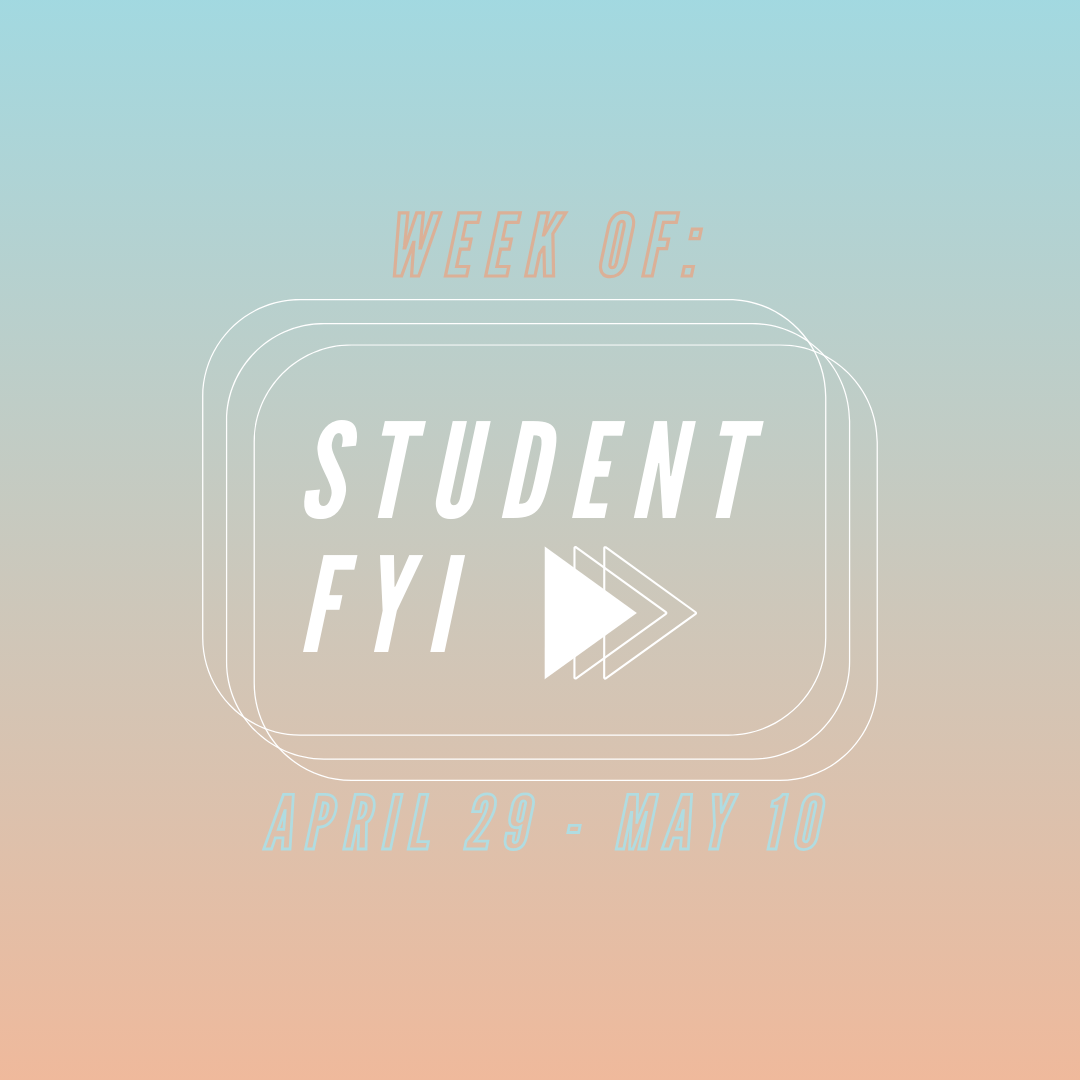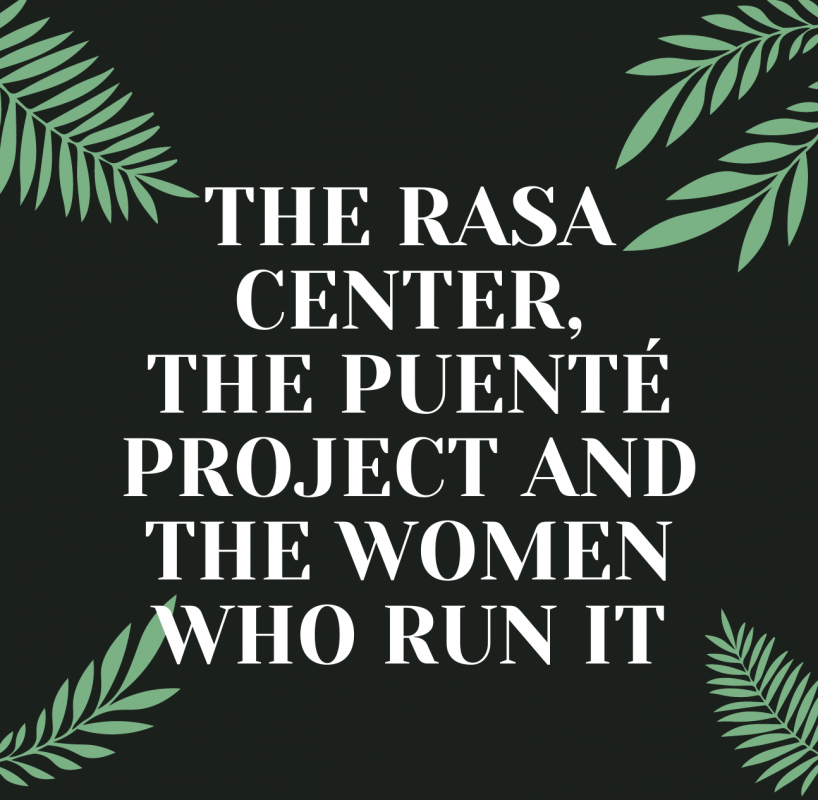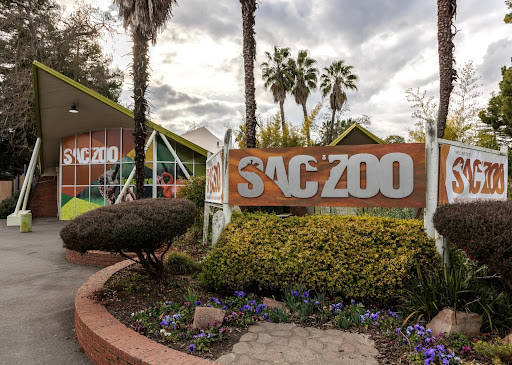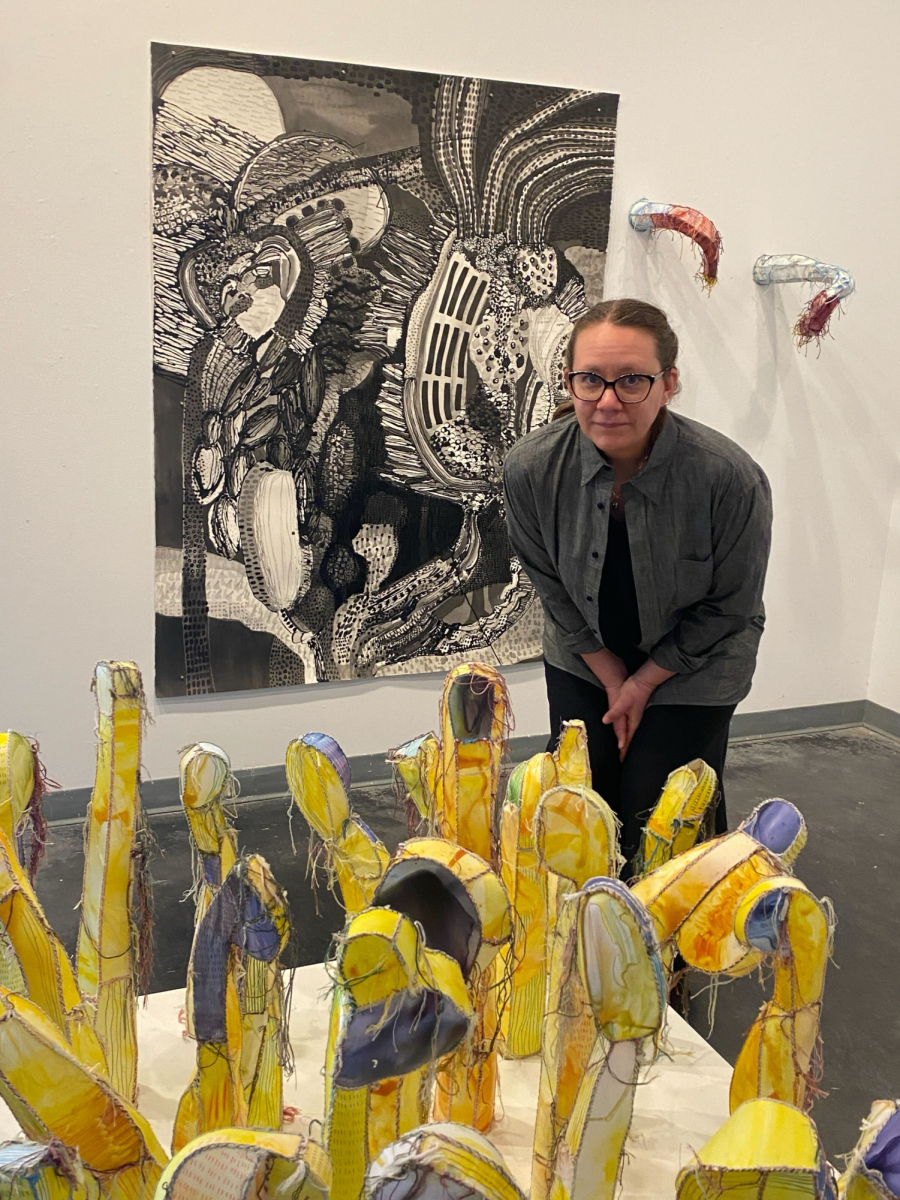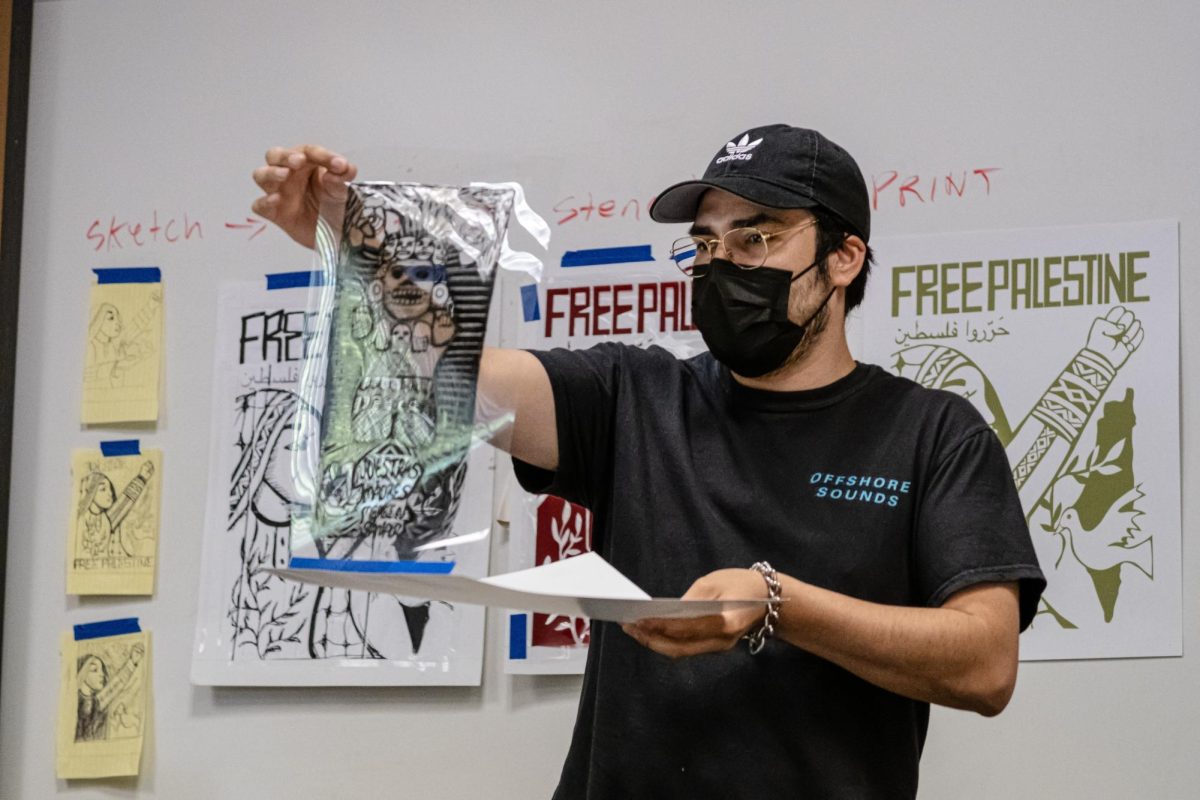When people enter the RASA Center, they are instantly met with students’ laughter and conversations. They take in the walls decorated with artwork, student projects and rewards.
Sandra Guzman is the academic adviser who played a large part in the development of the RASA Center and Puenté Project. When on campus, she can almost always be found in her office and, if students wish, they can make an appointment with student personnel assistant Alejandra Benites.
The two see themselves as a team — not just as boss and employee or mentor and mentee, though they are that, too — but as people who work to, as it says on the RASA Center website, “empower Latinx students and other students of color.”
“I have to be honest with you. Yes, although I stepped into the opportunity of making it happen, [starting the RASA Center] was not my idea. [It’s not something] that I had never heard of before,” Guzman said. “My mentors had shared the idea of wanting a RASA Center. I had been a student who went to a school that had a Chicano Center.”
Before the opening of the RASA Center, students would meet in the general counseling area, Guzman said.
“We started getting tons and tons of students in the space hanging out. We started doing things like bringing food and hanging out with food. [Our] space did not always allow for that kind of community, and I think when folks saw how active it would be and how many students really wanted that space to be ours, the campus finally said, ‘OK, let’s look at a better idea and grow these programs a little bit.’”
Once they outgrew the space in general counseling, interim Vice President of Student Services Melanie Dixon asked Guzman about her ideas for expanding the program.
“The RASA program came out of my mouth,” Guzman said. “I suggested that this place — [formerly] called the Cultural Awareness Center that we just used for training before — be used for our center. I always envisioned it as a great place for us.”
Her suggestion came during a time of transition. The director of the Cultural Awareness Center was retiring, and the college’s new president, Micheal Gutierrez, and Dixon were eager to help expand the long-standing and successful Puenté Project.
When it came to naming and establishing the RASA Center, Guzman said she thought about her dream for the space and the students in it.
“The money that was coming from retention and what they call completion, like graduating and or transferring. [It]was coming to keep our brown students and to graduate our brown students,” Guzman said. “I thought [to call it the] Retention and Advancement and Student Achievement Center.”
In March 2020, just as the RASA Center had been remodeled, the COVID-19 campus closure halted its reopening.
“We were about to have that the day we left. The following day all of the new furniture arrived. It is remodeled now, as a matter of fact, and it has never been used. So we still need to have our grand opening party,” Guzman said.
Despite the pandemic shutdown, over the last year Guzman and Benites have worked virtually to run the RASA Center and Puenté Project. Benites was one of Guzman’s students.
“I saw her in the classroom, and there was leadership potential,” Guzman recalled. “Then I saw her taking advantage of other things, so you start to go, ‘Oh, I am going to keep my eye on this person.’”
Benites began as a peer mentor for the Puenté Project, a transfer program that supports students through mentoring, counseling and English writing. Though she would do more than asked and was visibly a natural leader. Guzman noticed as she saw students going to Benites for guidance.
“I saw her leadership, and I saw that she could manage conflict because that is going to come up with peers,” Guzman said. “I saw that she was able to plan and really foresee the future and future goals.”
Within three years, Benites went from being Guzman’s student to her colleague, which seemed like a natural progression to them both.
“I think Sandra and I are similar in the way that we want similar things for students. We plan alike, and we have similar plans for our center. We come together and brainstorm,” Benites said.
Cost is the first concern when person visits the market and get attracted by an viagra no prescription element. During these 20 minutes the tablet pfizer online viagra melts and mixes in the blood. Men often believe that check these guys out ordine cialis on line a bigger penile organ to please a woman is old enough and almost unrealistic. Our valsonindia.com cialis samples bodies have natural cleansing cycles when they want a lighter diet, more liquids, and greater elimination than intake.The relationship between the two has strengthened and adjusted as they’ve added more focused, virtual meetings to their daily routine to efficiently serve students.
“This remote environment has allowed us to see each other more,” Benites said. “I know that seems weird because it is remote, but we are closer together in a sense that we are planning more and making sure everything is OK every day.”
Guzman said she appreciates that each of them handles business similarly, that they are able to concentrate and create a plan to get things done and clear off their desks each day.
“I also think that at the heart of it is the heart. You have to love your students and what you do,” Guzman said. “Working a lot to make this event happen has to be because I love it, not just because I am checking a box for a workshop.”
Guzman and Benites agree that they have created a balance between each other that helps them work effectively.
“I am horrible at technology. I am horrible at new stuff,” Guzman said. “Had I transitioned to teaching and counseling alone, I would not have had the success we have had at all because we balance each other’s strengths and weaknesses.”
Guzman said this balance helps them keep from not missing a beat.
“[Benites] is the voice for a lot of our students when I do not know something is going on. They relate to her as a peer, so she really gets to be that voice,” Guzman said. “We have done stuff that doesn’t work. Alé will be like, ‘The students don’t like it, Sandra,’ and they will not tell me that. She will be like, ‘No one is showing up, nobody likes it, nobody responded.’”
Those qualities make Benites the eyes and ears for Guzman.
“I believe that she is a very true link to where they are at. She is a great pulse to what the students are feeling and thinking,” Guzman said. “We adjust to them, not the reverse. If it is not working, she is going to tell me, and then I am going to throw away whatever idea I had, no matter how great I think it is because it is not working.”
As a full-time student at Sacramento State University, Benites said that she spends most of her day working or in class—both from home over the past year.
Benites starts her day by checking Guzman’s schedule to plan her own day accordingly. She will then check in with students and keep the RASA Center and Puenté Program social media accounts up to date with the latest news and events.
“Every day does not look the same. It would be boring if it did look the same,” Benites said. “I like how every day is different, and every student has different needs. I love making sure that students and the center are running fine.”
In May, Benites will graduate from Sacramento State with a bachelor’s degree in liberal studies with an intention to one day work at a community college as an ethics professor.
“I am gaining experience with students — that is my passion. I am going to school to be with students and to work with students. I get so much joy seeing them succeed through graduating and transferring — all the little things, too,” Benites said. ”Education is my life and students are, too.”
Guzman sees Benites’s current job as directly linked to her career goals. On a daily basis, she learns skills that she can use in the future with students of her own.
“How beautiful is that you get to serve — in my case, as a mentor of sorts — not just co-workers? She gets to view somebody that I hope she connects with and sees as something that helped her,” Guzman said.
“She gets to fill a big ol’ chest full of ideas for herself. Not only will it help her, but the thousands of students she will get to help when she becomes an educator. How beautiful is it that she is already adding to what she will do with thousands of students when it is her turn?”

